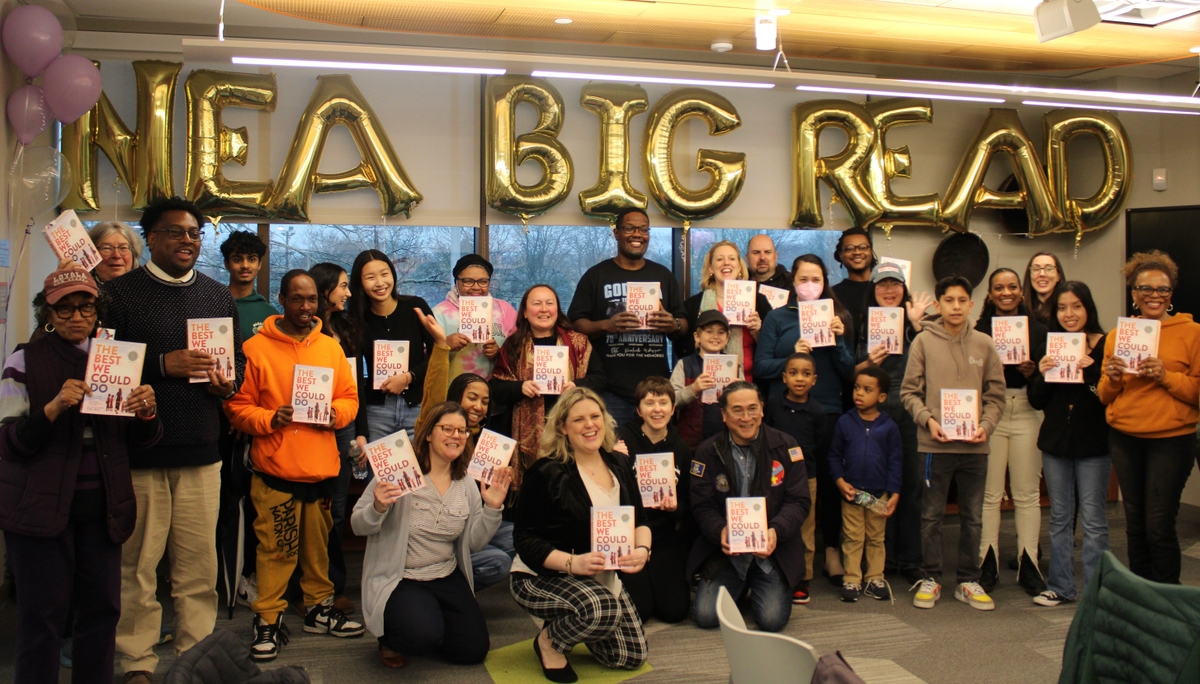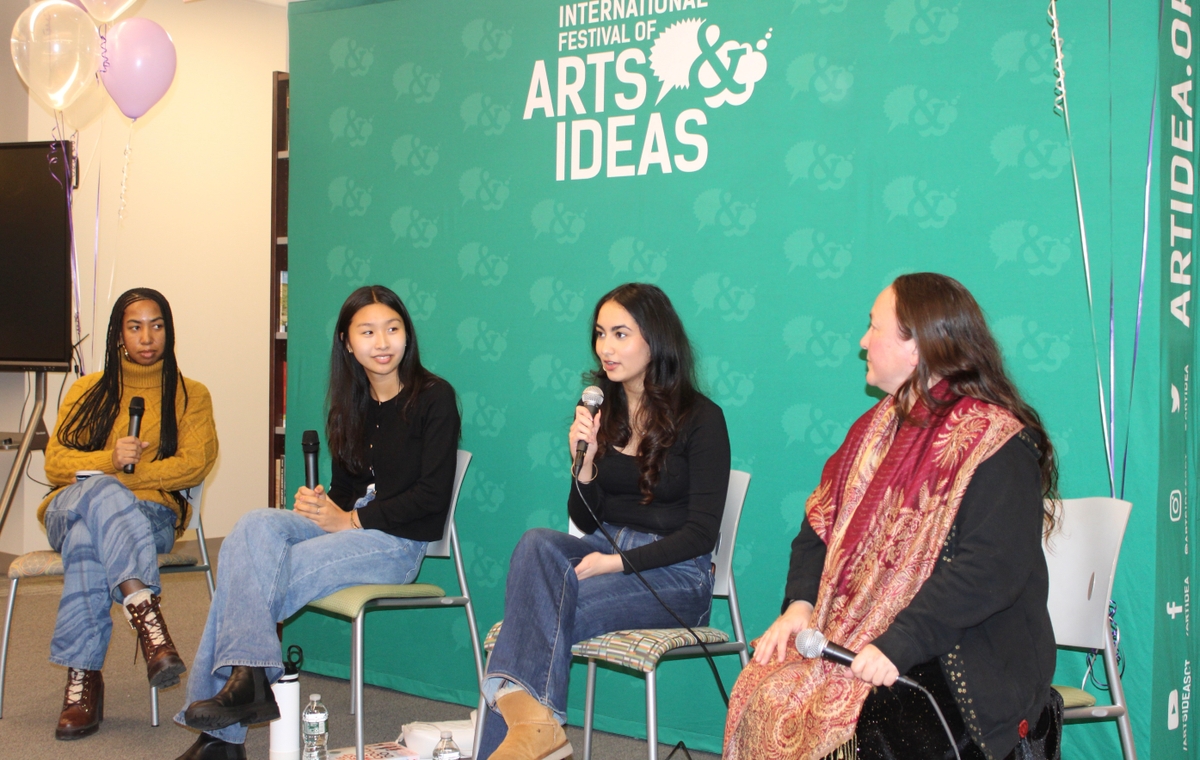
Kian Ahmadi photo
At Wednesday's Big Read kickoff.
“The model minority myth is my worst enemy,” Angelina Li said at a Dixwell public library celebration of diversity and complexity and, of course, “big” reading.

Moderator Shamaine "Sha" Mcallister, Angelina Li, Simar Soni, and JHD.
Over 40 people showed up to listen to Li, a senior at Hopkins, speak alongside Bethel High School senior Simar Soni and Jennifer Heikkila Diaz, aka JHD, to kick off the annual National Endowment for the Arts (NEA) Big Read celebrating Thi Bui’s graphic memoir, The Best We Could Do. The event took place at the Stetson branch public library at 197 Dixwell Ave.
Wednesday’s gathering marked the first of an eight-event series organized by the International Festival Arts & Ideas, including a virtual author talk planned with Bui for next week. Attendees were offered a free copy of her book, which tells the story of her family’s immigration from South Vietnam in the 1970’s. They also got a free Stetson library card, and more knowledge about Asian American inclusion.
During the panel, Li and Soni, founders of The Hearstory Project, admitted that they used to change their names to sound “whiter” and felt alienated from their Asian identities during their elementary and middle school years.
Both feel that their current high school curriculums include more Asian American and Pacific Islander (AAPI) education now, but they wish they could have gotten it earlier. That’s why they lobbied for state House Bill 5282, which will go into effect in 2025 and which mandates AAPI education from K‑12 in Connecticut public schools.
Li described her nemesis — the model minority myth — as “a stupid term created to put all Asian Americans in one box and tell other minorities ‘you need to be successful like us.’”
JHD, a UConn activist in residence, added that this myth “was created to cover up what our country did to Japanese Americans” in the 1940s.
JHD said she’s seen many schools add AAPI books to their curriculum, but often they are the same stories which don’t truly represent all the experiences of the Asian community.
She described how this myth contributes to Asian Americans being pitted against Black Americans. Arts & Ideas Executive Director Shelley Quiala stressed how important it is to highlight an Asian author in a historically Black neighborhood like Dixwell in that effort to build bridges and encourage cross-cultural understanding.
Arts & Ideas Engagement Director Shamaine Mcallister praised JHD as “instrumental in getting this book to students,” which is now read in every New Haven public high school and at the Highville Charter School.